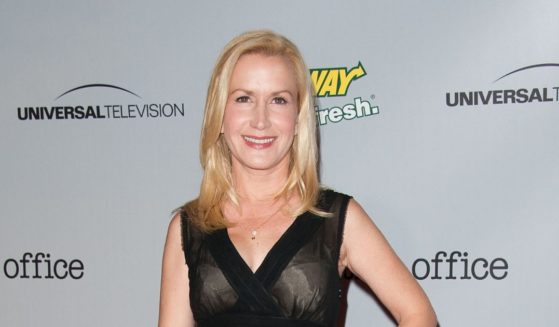James Pinkerton: Investing in the Red-Blue Rumble
We all know about the downside of political polarization, but what about the upside? For instance, if “go woke” means “go broke,” who gets the money instead?
For those paying attention, there’s a silver lining in the red-blue rumble.
Conservative boycotts against brands such as Bud Light, Disney and Target have hit hard; in the last three years, for instance, Disney stock has fallen 40 percent, even as the S&P 500 has risen 25 percent.
Less noticed, but perhaps even more telling, has been the decline of BlackRock, the Manhattan-based investment giant that has bet big on environmental and social governance.
Its CEO, Larry Fink, has bragged that he has used his leverage to “force behavior” upon reluctant companies — that is, ESG. Yet in the last three years, its stock has dipped about 15 percent, and now Fink doesn’t talk ESG as much.
Indeed, the company knows it has a problem: In the bland language of its Feb. 23 filing with the Securities and Exchange Commission, BlackRock assessed the risks it faces, conceding that ESG might be “viewed differently by various stakeholders and adversely impact BlackRock’s reputation and business, including through redemptions or terminations by clients, and legal and governmental action and scrutiny.”
Translation: Ouch! And that was before a Texas state pension fund withdrew $8.5 billion.
So, OK, BlackRock has become “BlueRock,” in keeping with its Democratic coloration. But here’s a question: If BlackRock is now black and blue, could anyone be picking up the pieces? Specifically, could there be a conservative-minded finance empire on the rise, a “RedRock”?
One seems to be emerging, as big investors such as Ken Griffin and Carl Icahn have left Illinois and New York, respectively, to come to Florida, which boasts no state income tax. Meanwhile, Evergreen Investments left tax-happy Washington state to come to Texas. Gov. Greg Abbott speaks of his no-income-tax state as “Wall Street West.” Hint, hint.
At the same time, other companies are chipping away at blue giants.
Angel Studios, based in Utah, has been having a great run, based on hit movies such as “Sound of Freedom.” To be sure, Angel is just a fraction of Disney’s size, and yet we should recall that a century ago, Disney was just a glint in Walt’s eye.
Then there’s Chick-fil-A, always a conservative bastion, gaining nationwide market share. And newbies, such as Black Rifle Coffee. Speaking of rifles, every gun company is making at least something of a political statement by just existing — and sales are rising.
Needless to say, there are plenty of big woke companies left, but it’s plain that corporate America is backing off, at least a little, on ESG and DEI, striving to be inoffensive to everyone — to appear, as it were, “purple.”
Yet companies now exist in an environment in which every social media post and campaign contribution can be scrutinized. To get the true measure of a company and its stock — and its wokeness — an investor might study those campaign contributions.
For instance, during the 2020 presidential campaign, just 7 percent of the donations of Alphabet (Google’s parent company) went to Republicans. Given that intense skew, it’s not surprising that Google’s AI program, Gemini, was so comically woke that it was laughed off the national stage earlier this year. During that time of mockery, Google’s stock fell 10 percent.
In the meantime, Elon Musk’s X (Twitter) has taken its place as a haven for conservatives. Even as establishment media critics have pounded Musk and his company, it’s been gaining traffic and has displaced Fox News as the main forum for red. Yet at the same time, as Musk positions himself as a conservative, he’s suffering a backlash from blue, where most Teslas are sold.
Polarization is a double-edged sword — it cuts both ways, slicing through existing markets and restacking valuations.
Savvy investors have always known “the trend is your friend.” Well, this is a new trend: red vs. blue.
The views expressed in this opinion article are those of their author and are not necessarily either shared or endorsed by the owners of this website. If you are interested in contributing an Op-Ed to The Western Journal, you can learn about our submission guidelines and process here.
Truth and Accuracy
We are committed to truth and accuracy in all of our journalism. Read our editorial standards.












